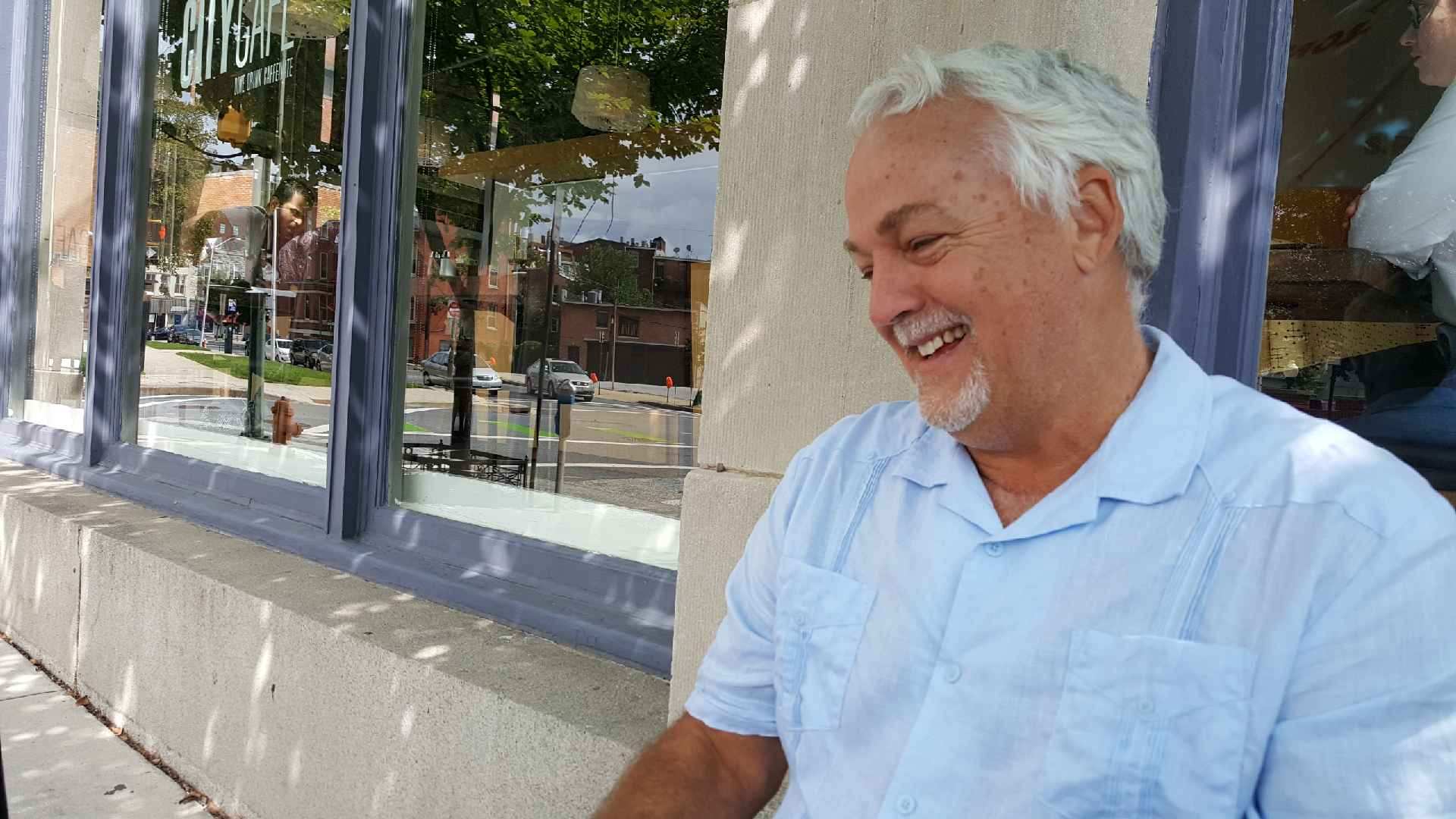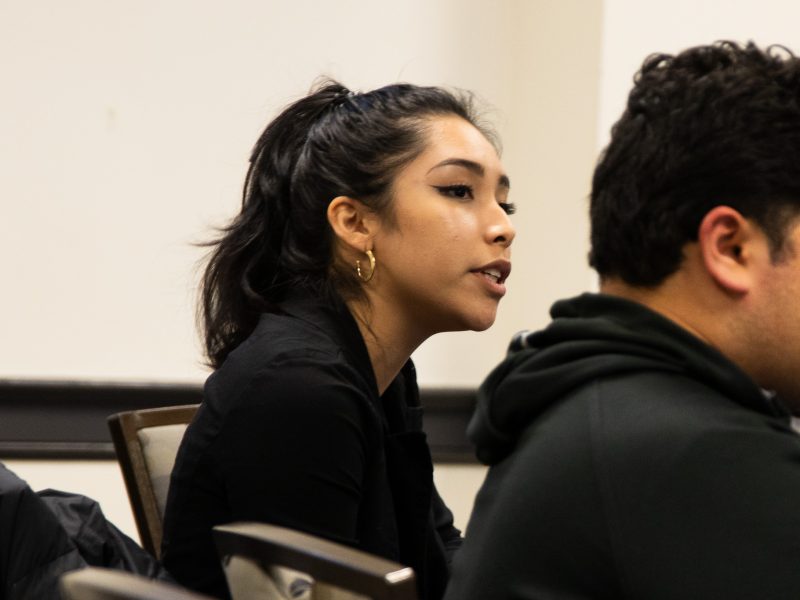On Robert Hiaasen’s desk at his home in Timonium, there sits an old-school typewriter, a leg lamp (think: A Christmas Story) that’s turned on in his honor and a tall stack of files he put together in preparation for the class he was planning to teach at the University of Maryland this fall.
The spring semester was the first time Hiaasen taught a college-level class, his wife Maria Hiaasen said. He taught JOUR320: News Writing and Reporting II — a required class for all multiplatform journalism majors — and was planning to do so again this fall.
His wife said he loved being called “professor.” He was at his proudest when sharing stories about students who had shown growth in his class, she added.
Hiaasen, an assistant editor and columnist for The Capital and a journalism lecturer at this university, was one of five Capital Gazette staff members killed Thursday when a gunman opened fire at the paper’s office in a targeted attack, according to police. He was 59.
Two other victims, Gerald Fischman and John McNamara, were alumni of this university.
“He would’ve stayed and taught with us, I think, a long time,” said Sandy Banisky, a journalism professor at this university. “And we would’ve been the better for it.”
[Read more: UMD journalism lecturer Rob Hiaasen killed in Capital Gazette shooting]
Banisky, who worked with Hiaasen at The Baltimore Sun, said he had to drive from Timonium to Annapolis every morning, from Annapolis to College Park in the evening and from College Park back to Timonium at the end of the day. But he was still always excited to be teaching.
“It’s very hard to believe that out of all the people in the world, this happened to Rob,” Banisky said.
Hiaasen is survived by his three children and three older siblings. He cared deeply about his entire family, budgeting time to talk to his niece, who recently became a mother.
In addition to words and people, Hiaasen loved nature, his wife said. He would sometimes experiment with cutting the bushes in the backyard a different way or try building something in the garage.
Still, journalism was Hiaasen’s passion. He had experience as a high school substitute teacher, and he was adored by his first and last class of college students.
One day, in the middle of Hiaasen’s class, he created an assignment on ELMS and told his students to go look at it, said rising senior journalism major Hannah Himes.
“We looked, and it was an assignment to eat his wife’s cookies that she baked for our class,” she said. “And he had put it on ELMS as a real assignment.”
[Read more: UMD alumni Gerald Fischman and John McNamara killed in Capital Gazette shooting]
Banisky said she cannot remember a time when Hiaasen was not smiling. His specialty was longform narrative pieces, and Banisky said he enjoyed finding the perfect word and structure to make his stories as powerful as possible.
Hiaasen’s passion for language and writing were constants in his life, his wife said — he loved to read, and even dabbled in fiction writing. The pair frequently made time to discuss the beauty of a sentence he read in a magazine or newspaper.
Sometimes, Maria Hiaasen said, her husband would stop in the middle of reading and sit still.
“I’m thinking,” he would say. “And I’m resting.”
Teresa Johnson, a rising junior journalism major, took JOUR320 with Rob Hiaasen in the spring. She said his inviting energy made him like a “journalism dad” to the class, adding that he helped her overcome previous struggles she’d had with her studies.
“If I didn’t have him as a professor for that class, I would’ve probably dropped the major,” Johnson said. “He made it feel like I could do it.”
JOUR320 has a reputation as one of the most difficult courses in the journalism school, journalism lecturer Christine Harvey said, but Hiaasen was able to make students feel “confident and comfortable” in his class by bringing “all of his kindness into the classroom.”
Harvey said Hiaasen was as compassionate as he was skilled, and connected with people in his personal life as well as those who he wrote stories about. He saw a lot of good in the world, she said.
Hiaasen “believed in the power of journalism and in the power of story” to shed light on that good, his wife said.
“He, if given the opportunity, would talk all day about the value of narrative journalism, of telling stories about people, the people behind the event,” she said.
On the last day of his class last spring, Johnson said, Hiaasen shook every one of his students’ hands.
Johnson, however, asked for a hug.
“I just wish I gave him a stronger hug,” she said.



